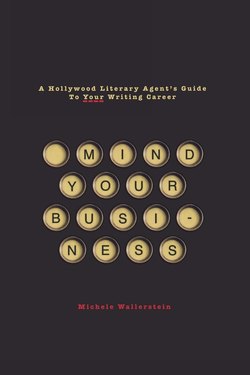Читать книгу Mind Your Business - Michele Wallerstein - Страница 16
На сайте Литреса книга снята с продажи.
ОглавлениеTO REWRITE OR NOT TO REWRITE 7
Choosing a career as a writer is easy. Writing is hard. Rewriting is even harder.
As a screenplay and novel consultant I read the client's work, make correction notes on the manuscript, and do a write-up on the project's problems.
After that I have a phone conference with the writer and go over all of the notes verbally, answer any questions the writer may have, and give advice and direction regarding the business of writing and the entertainment industry.
When I was an agent I did the same thing with my writers’ new screenplays. There were always notes from me about how they could and should improve their work.
Invariably the clients ask the question, “Should I rewrite this script or move on to something else?”
Writing is a very personal occupation. It's about the creative genie inside of you. It's about your ego and desires. Where are the hard and fast rules that apply to everything else? They simply don't often apply to creative writing because, for the most part, you are your own boss and that gives you the freedom of choice.
To rewrite or not to rewrite, that is the question you ask of me. I don't have a stake in this process nor does anyone in your writers’ group or anyone else that you might go to for input. This baby is yours and you are asking a question for which you already know the answer.
Of course you should rewrite the script. But, having seen and listened to people's notes, you wonder if it will take too long. You wonder if you are up to the task. You wonder if this script is the right one on which to devote so much time and energy. You wonder and you wonder. Then, hopefully, you realize that rewrting is a lot of work and you are just putting off the inevitable.
Writing is a process. Rewriting is a huge part of that process. By the time you give your manuscript to someone you have rewritten it a zillion times. You might think that you're burnt out on this project or that my notes are too hard to do. If you feel this way then you need to find a different vocation. Give up the writing and go into selling printing supplies, or go back to being a lawyer or teacher or wrestler.
When you receive rewrite notes from me or anyone else it is your obligation to yourself to push a little harder and spend a little more time to improve your work. This is only the beginning. If you are able to make the jump into professional writing, you will be given more rewrite notes by producers, story editors, development executives, agents, managers, and actors. The powers that be in the business will have you rewriting yourself to death. Or, if you're really lucky, you'll be rewriting someone else, for a huge amount of money.
Do it and get used to doing it. Even if you never sell this particular piece, I guarantee that you will grow from the experience and it will add to your writing skills tremendously. It is a fabulous learning process that will help you immeasurably.
Paul Chitlik has written a wonderful book, Rewrite, which will be of great assistance to you. It is published by Michael Wiese Productions. Go to www.mwp.com to order this book.
EXERCISES
1. Wait two weeks after you've finished your screenplay.
2. Read it through in one sitting.
3. Think of how it could be better.
4. Begin to rewrite it.
5. Repeat exercises 1-4 above.
